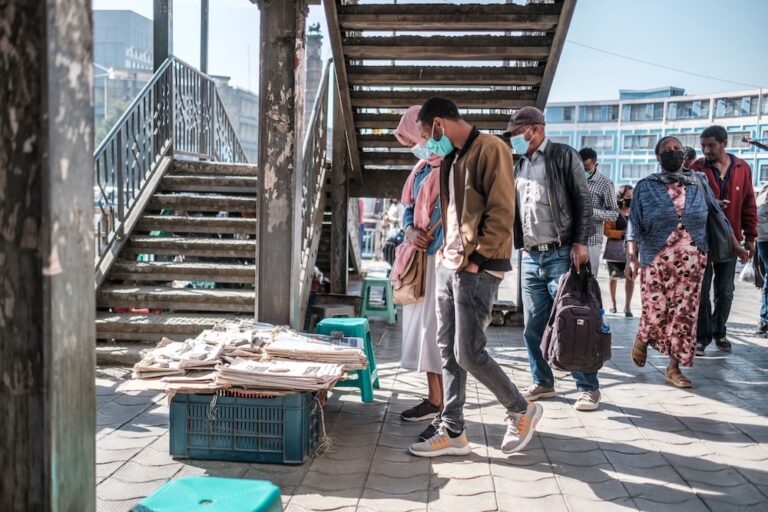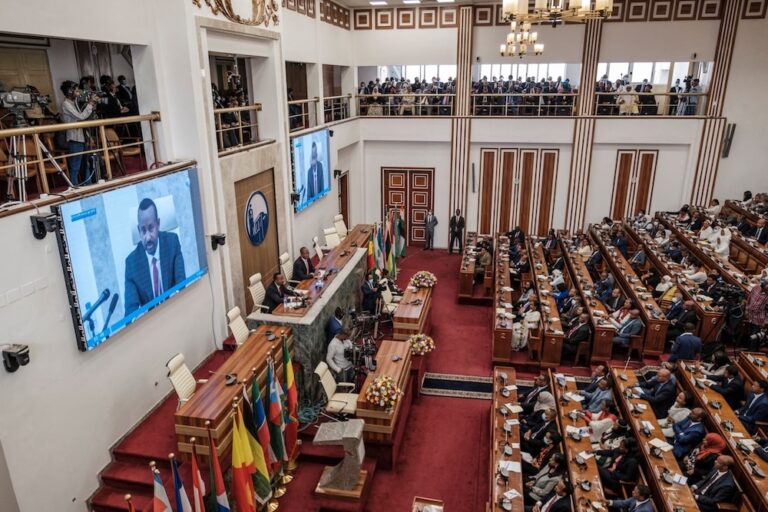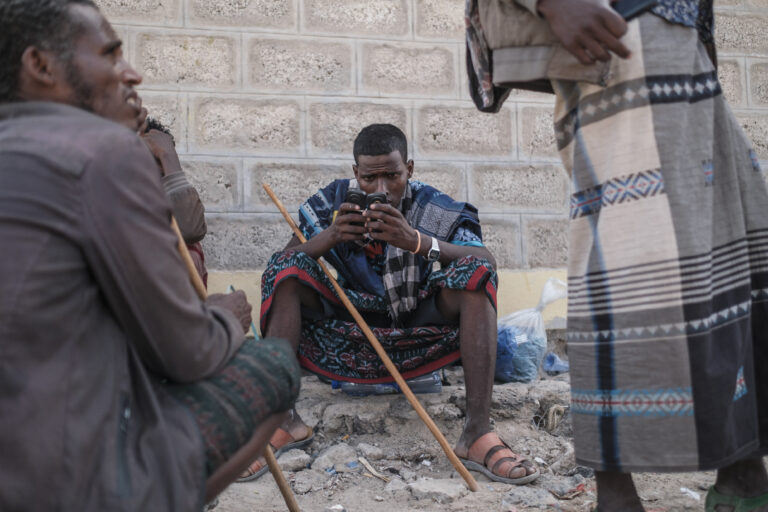(RSF/IFEX) – Reporters Without Borders is dismayed to learn that Amare Aregawi, the editor of the big-circulation weekly “Reporter”, was arrested on 22 August 2008 in Addis Ababa and was then illegally transferred to a prison in Gondar, 750 km north of the capital, in connection with a libel case brought by the Gondar-based Dashen […]
(RSF/IFEX) – Reporters Without Borders is dismayed to learn that Amare Aregawi, the editor of the big-circulation weekly “Reporter”, was arrested on 22 August 2008 in Addis Ababa and was then illegally transferred to a prison in Gondar, 750 km north of the capital, in connection with a libel case brought by the Gondar-based Dashen brewery.
“The Ethiopian government reminds the press about the law so often that it is hard to understand how it allows prosecutors to violate it so openly,” Reporters Without Borders said. “Amare’s unjustified arrest exposes the unfairness of legislation that allows journalists to be imprisoned for defamation. His newspaper dared to question a big company’s practices. Now he, like the reporter who wrote the offending article before him, is paying the price for having the courage to do his job properly and serve the public interest. He should be released at once.”
Police from the Amhara region arrested Amare on the afternoon of 22 August at his office in the Addis Ababa headquarters of Media and Communication Centre, a company that owns two well-known weeklies, the Amharic-language “Reporter” and the English-language “The Reporter”.
Journalists who were present at his arrest told Reporters Without Borders that the police were also looking for deputy editor Eshete Assefa and Teshome Neku, the young reporter who wrote the article in July quoting two former Dashen brewery employees as saying they were wrongfully dismissed. Neither Eshete nor Teshome were in the office at the time.
Amare, who ran Ethiopia’s public television after the fall of the Derg dictatorship in 1991, was initially taken to the headquarters of the Addis Ababa police. He was later transferred to Gondar where he appeared in court on 25 August. A member of the newspaper’s staff told Reporters Without Borders that the prosecutor and judge offered to release Amare on bail in Gondar, but he refused on the grounds that it was illegal for him to have been taken there.
Under a new press law that was adopted in July, defamation cases are supposed to be tried in the place where the alleged offence took place. As “Reporter”‘s registered headquarters is in Addis Ababa, the case should be heard in the capital and there were no grounds for taking Amare to such a remote location.
A few days after the article appeared, Teshome was arrested and taken to Gondar, where he was freed on bail after three days. The judge who ordered his release told the prosecutor that Teshome should be tried before a court in Addis Ababa because the newspaper was duly registered there.
A second story about the unfair dismissals at the brewery, published by “Reporter” on 20 July, quoted two representatives of the Confederation of Ethiopian Employee Associations (CEEA), who accused the brewery’s management of breaking up its union, firing its leader, setting up a new, company-controlled union and other illegal practices.


